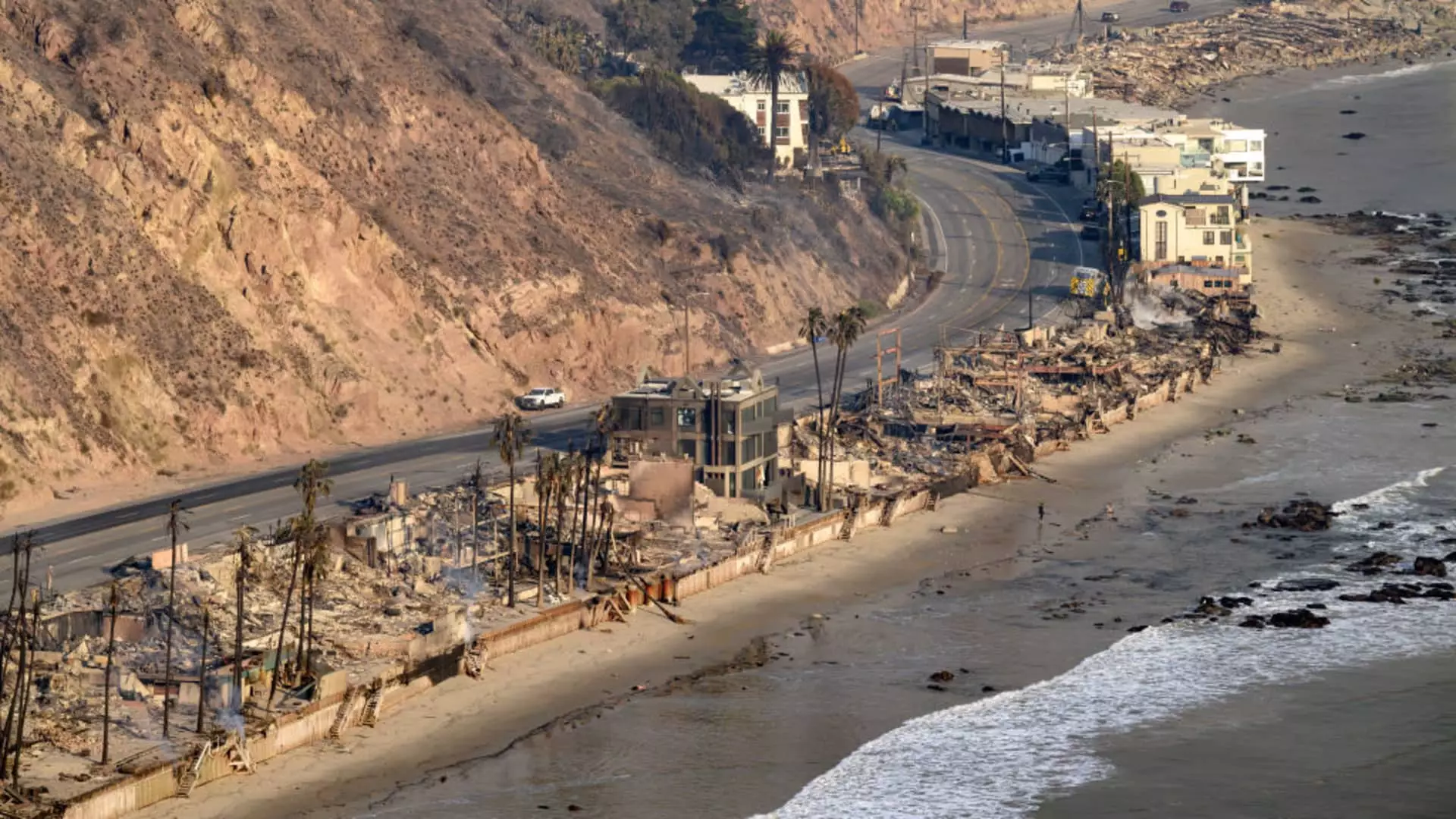As wildfires continue to wreak havoc across Los Angeles, airlines have stepped up to address the challenges faced by travelers. Major carriers such as American Airlines, United Airlines, Southwest Airlines, and JetBlue Airways have implemented travel waivers to assist customers affected by the dire circumstances. These waivers reflect the airlines’ commitment to passenger welfare and adaptability in the face of natural crises.
The current situation, which involves extensive power outages, significant water shortages, and the destruction of over 10,000 homes, necessitates a proactive response from airlines. By removing fees for flight changes, they are providing much-needed flexibility to passengers booking flights to or from Los Angeles. This approach not only helps those directly impacted but also ensures that airlines maintain a positive rapport with the public during difficult times.
Despite the chaos on the ground, operational reports indicate that Los Angeles’s major airports remained functional as of last Friday. According to the flight-tracking service FlightAware, flights continued to operate, offering a semblance of normalcy for travelers. However, this was overshadowed by the grim realities of ongoing wildfires in parts of the city.
In areas like Pacific Palisades, residents are grappling with compromised utilities, with advisories to boil water due to contamination fears. Compounding this, numerous regions are under evacuation orders, resulting in an unpredictable travel atmosphere. This precarious situation creates a unique challenge for airlines, which must navigate both operational functions and customer safety in uncertain conditions.
To facilitate travel amidst these challenges, American Airlines has outlined generous rebooking policies. Passengers affected by the wildfires can rebook flights without incurring additional fees or fare differences, which can be executed as late as January 20. Such policies not only ease the burden on travelers but also reflect an understanding of the situational unpredictability.
Southwest Airlines similarly acknowledged that the wildfires could hinder service to Los Angeles area airports. They have allowed customers to rebook within a two-week window from their original flight dates, providing options for adjustments to travel plans. In addition, the airline has suggested alternative destinations within California for those whose plans have been disrupted. This proactive communication and flexibility plays a crucial role in mitigating the impact of the wildfires on travel.
The ongoing wildfires have not only created immediate logistical challenges but also affected airline sales to Los Angeles, a critical hub for both business and leisure travel. Delta Air Lines’ president, Glen Hauenstein, disclosed a noticeable decline in flight sales to the region, although this has not yet materialized into widespread cancellations. This subtle shift in consumer behavior could hint at the broader economic impacts of the wildfires on travel patterns.
Historically, airlines often observe a rebound in travel demand following natural disasters, as communities focus on rebuilding efforts. Hauenstein’s acknowledgment of this pattern emphasizes a potential rebound effect that could be beneficial to airlines in the long term.
While airlines are navigating immediate concerns related to the ongoing wildfires in Los Angeles, their responsive rebooking policies and understanding of customer needs highlight a commitment to service that could reinforce loyalty in the future. The road ahead remains fraught with challenges, yet the resilience of both the airline industry and affected communities will be paramount in overcoming this multifaceted crisis.


Leave a Reply